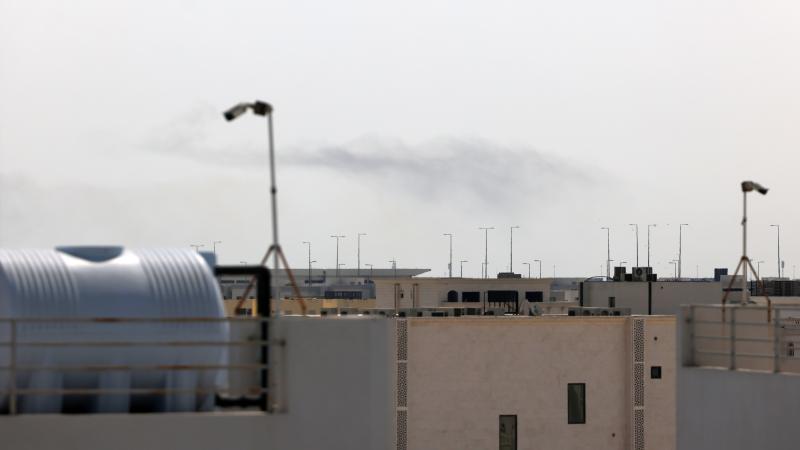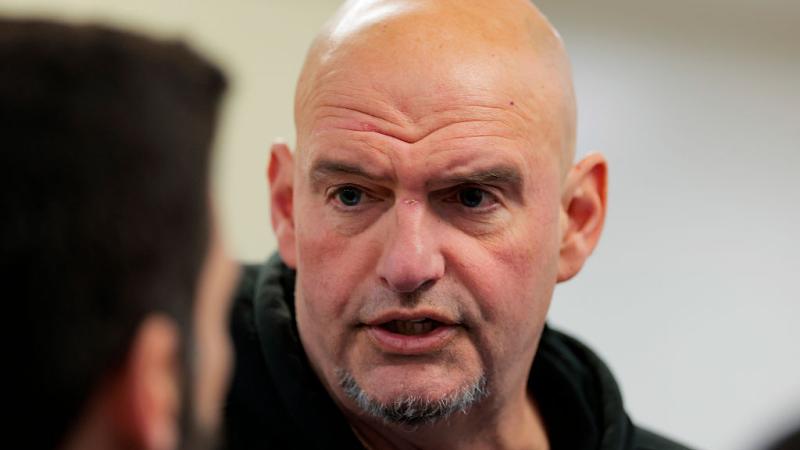Indiana AG sues Biden administration over immigration policy
Between January 2021 and February 2022, Rokita said the U.S. Customs and Border Protection released at least 757,857 undocumented immigrants into the United States.
Indiana Attorney General Todd Rokita announced he’s leading a 19-state coalition in a legal fight against the Biden administration’s refusal to comply with the “Remain in Mexico policy,” asking the Supreme Court to keep the policy in place to protect states from a “tidal wave” of illegal immigrants.
“As I witnessed firsthand on behalf of all Hoosiers, we pay an enormous price for the Biden administration’s complete disregard of their duties at the southern border,” Rokita said in a statement. “No one is above the law in America, and we are simply insisting that the Biden administration follow the law.”
The policy was implemented by President Donald Trump in 2019. It requires immigrants without clear authorization to cross the southern border into the United States remain in Mexico while their cases are reviewed.
Under the Remain in Mexico policy, from January 2019 through December 2020, the Department of Homeland Security returned more than 68,000 people to Mexico.
In January of 2021, Biden directed DHS to ignore the policy.
During the COVID-19 pandemic, DHS used a public health rule to expel 102,234 people in 2020 and 111,174 in the beginning of 2021. But that rule, called Title 42, is about to be lifted May 23.
In his news release, Rokita said federal agencies are legally required to properly consider the consequences of their actions on states and their citizens before making policy changes.
“That consideration did not occur before DHS threw open the southern border to new hordes of illegal immigrants,” Rokita said.
Rokita visited the Texas-Mexico border in late January to attend a border summit with several other attorneys general, hosted by Texas Attorney General Ken Paxton.
Last summer, he joined other states in a brief in support of a lawsuit supporting the Remain in Mexico policy. In August 2021, a federal judge sided with the states and ordered the policy to be re-instated, and the Supreme Court declined to stay the order.
“The individual states and our taxpayers are the ones footing the bill for social services like health care, education and other government assistance for illegal immigrants,” he said. “The lawless crisis at the border makes every state a border state. We are the ones endangered by the rapid escalation of human trafficking, fentanyl, and other drugs and criminals sent by cartels to our communities.”
The American Immigration Council estimates that as of 2016, there were about 100,000 illegal immigrants in Indiana. The organization also estimates that between 2010 and 2014, about 3% of children in the state lived with at least one family member who was an illegal immigrant.
Also, 8,870 DACA recipients were living in Indiana as of March 2020. DACA stands for Deferred Action for Childhood Arrivals and allows people who were brought to the United States illegally by their parents when they were young to get social security cards and driver’s licenses, and a two-year work authorization.
In 2021 there were 73,148 students in the state in an English Language Learners program, compared to 50,607 in the 2016-2017 school year – a 45% increase in five years. The state now spends more than $27 million a year on ELL programs in Indiana schools.
In the brief to the U.S. Supreme Court filed this week, Indiana and the other states argue the Immigration and Naturalization Act only allows DHS to release people arriving at the border into the United States pending a court hearing “on a case-by-case basis for urgent humanitarian reasons or significant public benefit" – not “en masse.”
Between January 2021 and February 2022, Rokita said the U.S. Customs and Border Protection released at least 757,857 undocumented immigrants into the United States.
Indiana is joined in the brief by Alabama, Alaska, Arizona, Arkansas, Florida, Georgia, Kansas, Kentucky, Louisiana, Mississippi, Montana, Nebraska, Ohio, Oklahoma, South Carolina, Utah, Virginia and West Virginia.















